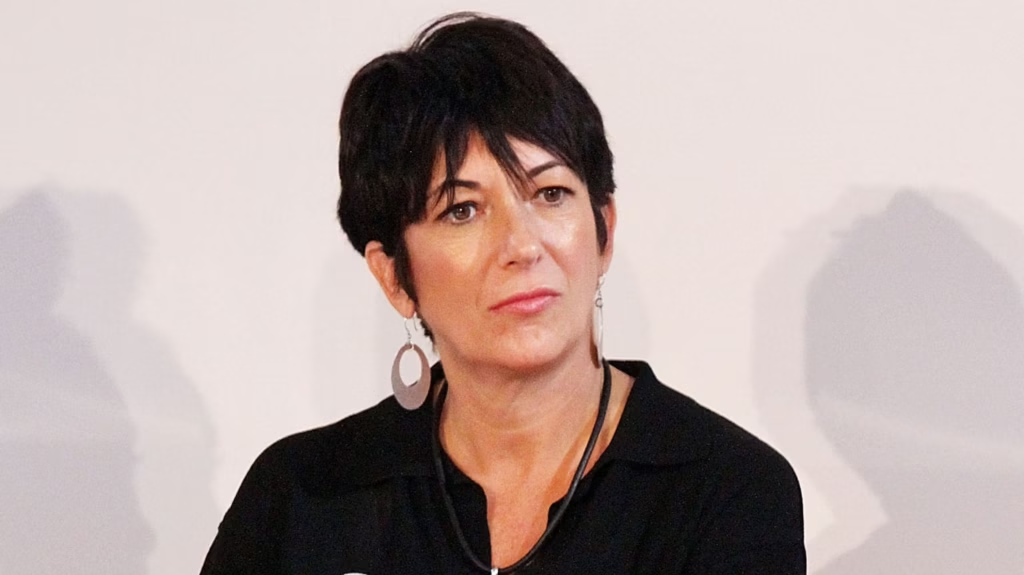
Ghislaine Maxwell, the British socialite convicted for her involvement in the Jeffrey Epstein sex trafficking ring, is once again in the spotlight. Her attorney recently revealed that Maxwell has not yet decided whether she will pursue an early release from prison—a decision that could significantly affect the next chapter of her highly controversial story.
A High-Profile Conviction
In 2021, Maxwell was convicted on several charges including sex trafficking of minors and conspiracy to entice underage girls into illegal sexual activities. Her role as Epstein’s close associate and alleged recruiter of young girls placed her at the center of one of the most disturbing criminal scandals in modern American history.
After a dramatic trial, she was sentenced to 20 years in federal prison. Since then, her legal team has explored multiple avenues to challenge her conviction or reduce her sentence. However, the possibility of early release is now under consideration—but still uncertain.
What Does Early Release Mean?
In the U.S. federal prison system, inmates may become eligible for early release through programs such as good behavior credits, compassionate release, or appeals. In Maxwell’s case, the attorney clarified that although such options exist, no formal request has been made yet.

The ambiguity surrounding her potential release raises significant legal and moral questions, particularly for the victims and the broader public, many of whom feel justice has yet to be fully served.
Legal Strategy in Flux
Maxwell’s defense attorney has indicated that any decision on early release would depend on various legal and procedural developments in the coming months. The team is reportedly weighing multiple factors, including ongoing appeals, the availability of legal relief under federal laws, and the overall condition of her imprisonment.
They have also suggested that Maxwell’s mental and physical health may influence the decision, though no specific claims or medical reports have been disclosed to date.
Public Reaction Remains Polarized
As expected, the news has reignited public debate. On social media and across public forums, reactions have been split. Some see Maxwell’s potential release as an insult to her victims and the justice system. Others argue that, like any convicted individual, she has the legal right to seek relief under due process.
Many advocates for Epstein’s survivors have expressed strong opposition to any leniency. They argue that Maxwell has never shown genuine remorse and that any reduction in her sentence would send a damaging message to other victims of sex trafficking.
The Broader Implications
Maxwell’s case is not just about one individual—it represents a larger conversation about accountability, wealth, and the reach of justice. From her privileged upbringing to her associations with powerful figures in politics and entertainment, her story reads like a disturbing thriller set in real life.
Legal experts point out that high-profile defendants often face unique scrutiny in prison and in court. Any attempt at sentence reduction will likely spark fierce debate and face legal challenges from prosecutors and victims’ attorneys alike.
Behind Bars: Life in Prison
Since her incarceration, Maxwell has reportedly been held at a federal correctional facility with medium security. Reports suggest she spends her days performing work duties, attending wellness programs, and has access to reading materials and recreational time. However, her legal team has occasionally raised concerns about her treatment and conditions.
Whether these circumstances amount to a strong case for early release remains to be seen. Federal judges are usually cautious when it comes to granting relief in high-profile cases, especially when the crimes involve minors and long-term trauma.
The Role of the Appeals Process
Another route Maxwell may pursue is through appeals. Her lawyers have filed documents aiming to overturn parts of her conviction. They argue that the jury was biased and that key evidence was improperly handled. However, experts note that the success rate for overturning federal convictions through appeal is generally low.
Still, a favorable ruling in any of the pending motions could impact her eligibility or timing for any release request.
What’s Next?
At this stage, Maxwell’s future remains uncertain. Her legal team seems to be playing a careful game, possibly to avoid premature backlash while continuing to explore all available legal strategies. No official paperwork for early release has been filed, and the timeline for any potential action remains unclear.

What’s evident is that this development will continue to attract intense media and public interest. Any steps taken will not go unnoticed, and the court of public opinion will be watching closely.

